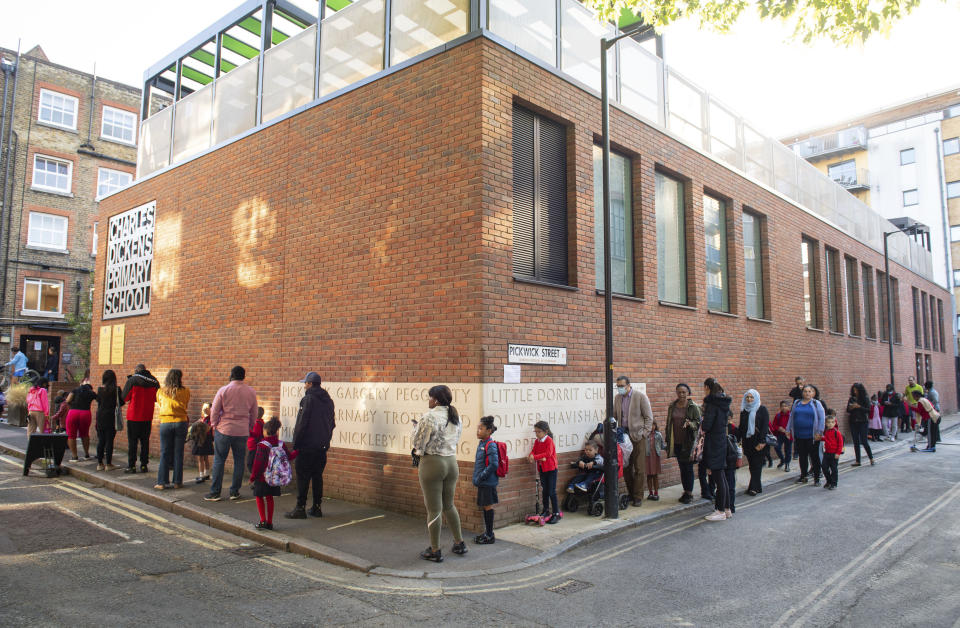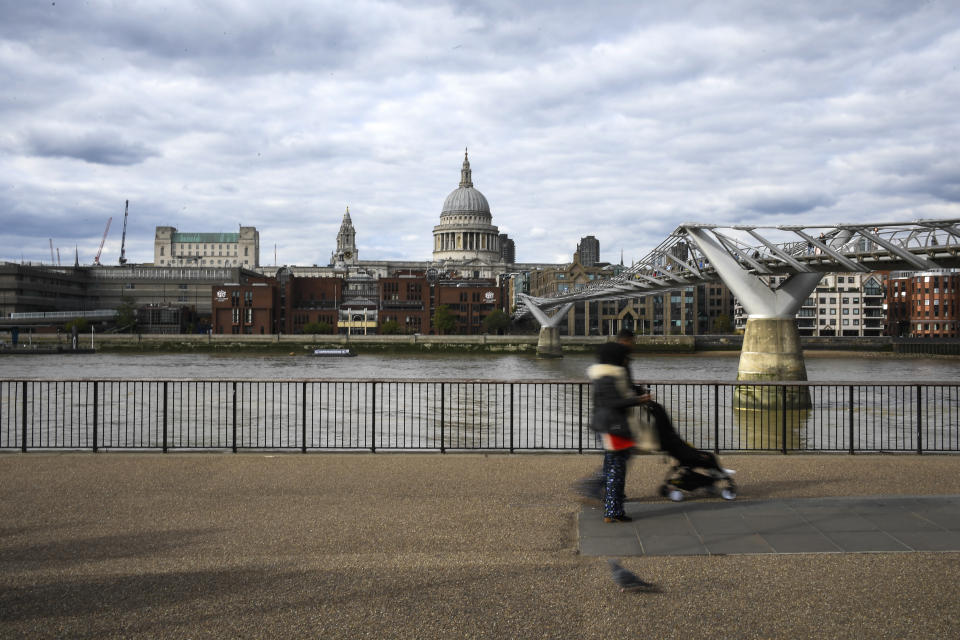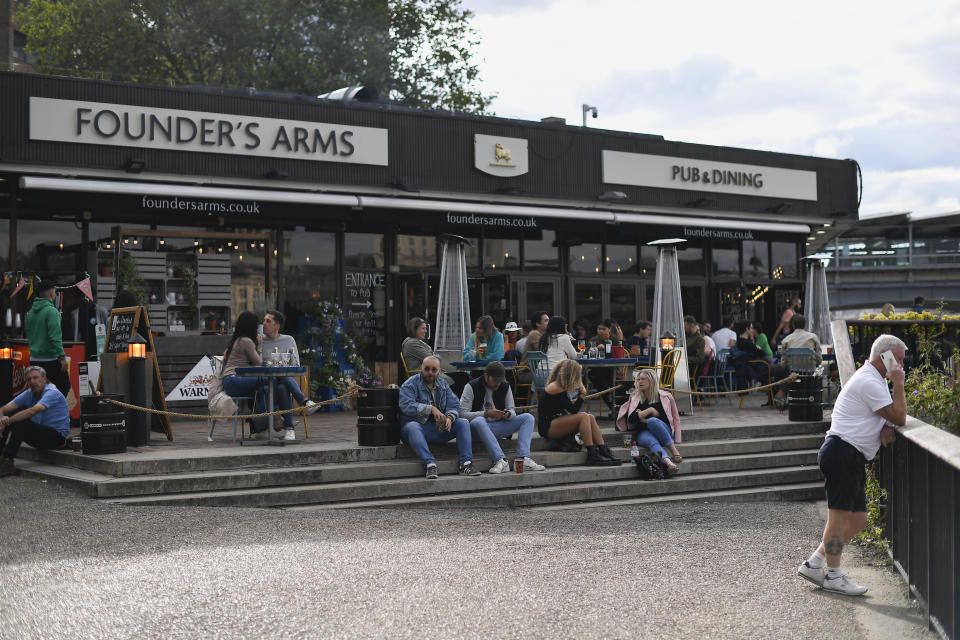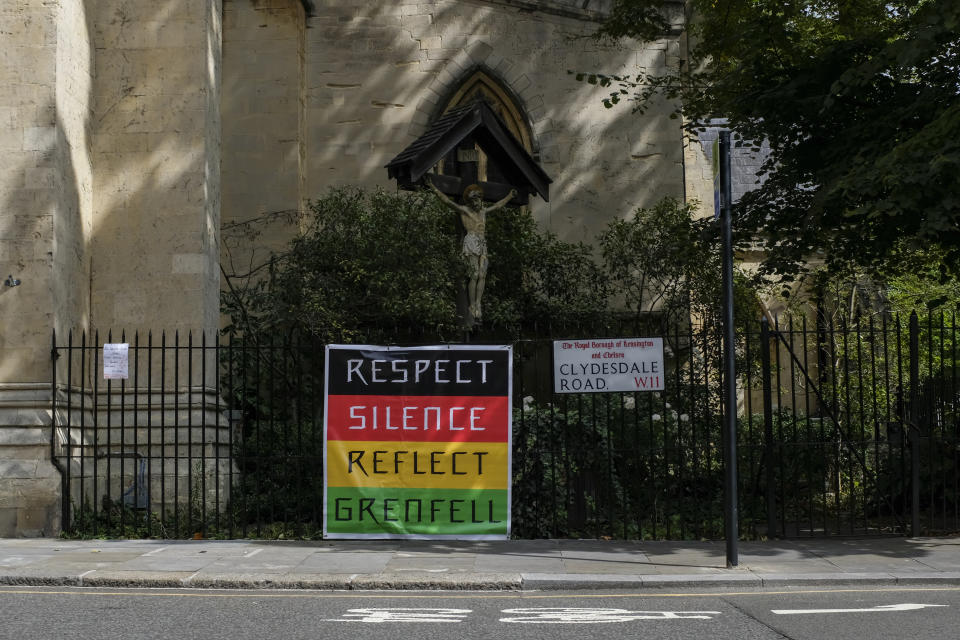UK slaps quarantines on Greek island travelers as cases rise
LONDON (AP) — The U.K. on Monday recorded nearly 3,000 new coronavirus cases for the second day running and unveiled a new “islands policy” that will require anyone returning to England from seven Greek islands, including Crete. Mykonos and Santorini, to self-isolate for 14 days.
According to the Department of Health and Social Care, the U.K. reported 2,948 daily new coronavirus Monday, down from the previous day's number of 2,988, which had been the highest since May.
Although the higher cases can partly be attributed to more testing, it's clear there's been an uptick in the past few weeks as lockdown restrictions have been eased. In some places, local outbreaks in Britain have been so severe that many lockdown restrictions have been reimposed.
British Health Secretary Matt Hancock said Monday the situation was “concerning” but denied that the government had lost control over the spread of the virus. He said those under 25 accounted for a large number of the new infections and appealed to them to keep social distancing to protect vulnerable loved ones.
“Don’t infect your grandparents,” he said.
Britain’s Conservative government also said Monday that travelers returning from seven Greek islands will have to quarantine for 14 days on their return to England beginning early Wednesday. Lesbos, Serifos, Tinos and Zakynthos have been added to the U.K. quarantine list. The other Greek islands and the mainland remain free of quarantine requirements.
Transport Secretary Grant Shapps said the changes are part of a new targeted risk approach to quarantine requirements to guard against importing coronavirus cases.
Britain has Europe's worst death toll from the virus, recording more than 41,500 deaths within 28 days of testing positive. The actual toll is believed to be far higher as the government tally does not include those who died without having been tested.
The spike in U.K. cases follows big increases in Spain and France, both of whom have seen the number of COVID-19 patients being hospitalized rising dramatically during the summer.
Spain's Health Ministry on Monday reported 26,560 new infections since its last report on Friday — an average of 8,800 new infections a day.
France has been averaging over 5,000 new infections a day recently. In France’s second city of Marseille, doctors have raised the alarm that nearly all the intensive care beds reserved for COVID-19 patients are already being used.
Over the past few weeks, British tourists have faced travel chaos as the government tweaked its weekly advice to popular holiday destinations.
The travel advice to the two most visited countries, Spain and France, changed at short notice, prompting many travelers to return to the U.K. in the middle of their vacations in order to avoid mandatory quarantines. Spain’s Balearic and Canary Islands remain on the U.K. government’s quarantine list.
The changes in travel advice have also slammed the travel industry.
Shapps said the government is “working actively on the practicalities of using testing to release people from quarantine earlier than 14 days."
Many travel companies such as London's Heathrow Airport have urged a ramp-up in testing but the government claims testing is“no silver bullet.”
Jim McMahon of the opposition Labour Party said the government’s response during the coronavirus pandemic has been “nothing short of chaotic” and says that ineptitude has been “acutely felt in aviation.”
___
Aritz Parra in Madrid and Thomas Adamson in Paris contributed.
___
Follow AP coverage of the virus outbreak at https://apnews.com/VirusOutbreak and https://apnews.com/UnderstandingtheOutbreak

 Yahoo News
Yahoo News 










